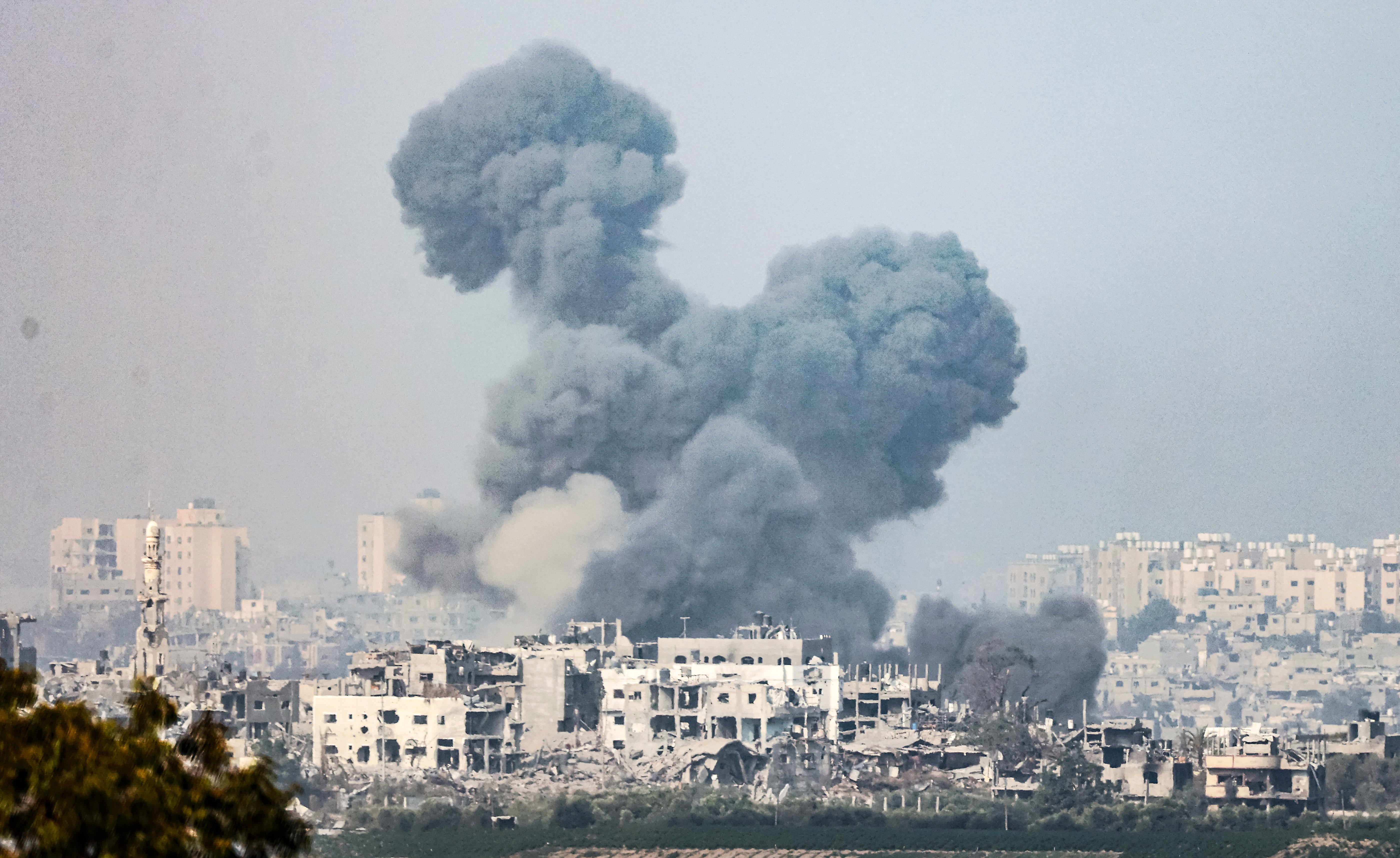The suffering of Gaza’s people is only increasing – they need aid
Editorial: Israel’s right to defend itself comes with a need to recognise the humanitarian situation

There might seem to be no more than a pedantic difference between “humanitarian pauses” and a “ceasefire” in the war between Israel and Hamas. Yet it is a real cleavage that has divided the world.
The reason that the United States and British governments refuse to use the word “ceasefire” is that Israeli civilians have been indiscriminately and deliberately slaughtered, and their government is duty-bound to respond to try to prevent further atrocities.
To call for a ceasefire immediately after one side has committed an act of criminal aggression is not even-handed, as many of those making that call might imagine. If a ceasefire means that Israel should do nothing to try to rescue the hostages, a ceasefire is wrong. Either Israel has a right to defend itself, or it does not.
This does not mean, emphatically, that Israel has the right to flatten Gaza, or to blockade it in such a way that indiscriminate civilian deaths are inevitable. Hamas’s breach of international law does not justify breaches of international law in response.
This is why the US and UK governments are right to urge humanitarian pauses, in order to allow food aid to reach the people of Gaza. We should be clear, however, who is most responsible for the increased suffering and death brought upon the people of the territory, namely Hamas. If worldwide calls for a ceasefire were accompanied by calls for Hamas to stop firing rockets at Israeli civilians, to stop using the people of Gaza as shields, and to release the hostages, they would be more credible. In other words, if calls for a ceasefire were directed at Hamas rather than at Israel, they could be justified. After all, if Hamas ceased hostilities, Israel would not need to respond.
Unfortunately, as everyone calling for a ceasefire well knows, Hamas is most unlikely to lay down arms. In which case, the demand for a ceasefire is a demand for one-sided disarmament.
None of which, of course, is any use to the civilian population of Gaza. They need food, fuel and safety. And the Israeli government must find a way to allow sufficient supplies into the territory – as must the Egyptian government, which controls Gaza’s southern border. But it is the Israeli government that needs to act most urgently – not just because it is required by international law to minimise avoidable suffering and death among civilians, but because it is also in the interest of the long-term security of the Israeli people.
The strongest emotional force behind the calls for a ceasefire is the anguish at the prospect of yet another round of violence that will only beget more violence. Israel’s leaders should respect the power of this feeling, which is shared by many Israelis themselves.
The most powerful question, which brought people out on the streets of London on Saturday and around the world, is: where will it end? Answering that question requires the Israeli government to offer something more constructive and realistic than the “elimination” of Hamas as a war aim.
That means allowing more aid into Gaza, as part of an effort to persuade world opinion that the Israeli cause is just. It means listening to US and UK voices calling for humanitarian pauses and recognising the value of candid friends and allies.



Join our commenting forum
Join thought-provoking conversations, follow other Independent readers and see their replies
Comments